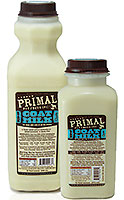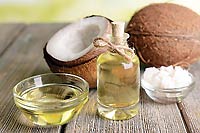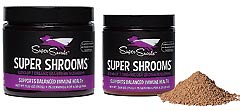Nutrition really is the foundation of health. It’s the body’s fuel and provides the building blocks for the maintenance of health, tissue repair and energy. At the Moab BARKery the most important issue we talk about is diet and digestive health. If you are ready to improve your dog’s diet and health but you are not completely ready to move from kibble to raw, there are some very basic things you can add to your dog’s diet that can make a tremendous difference to their health, whilst also reducing the amount of dry processed kibble that you feed every day. As a general rule, these are wonderful things that can be added to almost any diet for dogs.
Bone Broth provides such tremendous benefits for your dog. What is bone broth exactly? It is bones, simmered low for several days with apple cider vinegar. This slowly breaks down of all of these nutrients, making them extremely bioavailable to the body. The benefits of bone broth include…
• Improves digestion and helps heal “leaky gut”
All disease starts in the gut, autoimmune, allergies and chronic inflammation. Gelatin soothes and repairs the mucosal lining to help seal the gut barrier, which can become damaged and allow toxins into the blood stream. Gelatin assists the breakdown of proteins and fats from food, making them easier to digest.
• Assists in detoxing the liver
Glycine is a powerful precursor for the production of glutathione, a powerful detoxifier. The liver is such a hard-working organ; its most important job is to detoxify those things that our dogs are exposed to that the body has to clear. It flushes out chemicals, hormones and waste. It also provides minerals, acids and electrolytes that boost the detox process.
• Reduces inflammation
Glycine and proline are powerful anti-inflammatories.
• Alleviates joint pain
Recent studies show that the components of bone broth can provide relief from joint pain.
• Strengthens bones, joints, muscles, tendons and ligaments
Glycine is important for building muscle strength. It prevents the breakdown of proteins in muscle tissue and preserves it, which helps prevent atrophy in aging dogs. The collagen contains proline, glucosamine and chondroitin which support cartilage and cushion the joints.
• Boosts the immune system
Gives the body the tools needed to boost antioxidant activity which helps to fight infections.
• Supports brain function
Glycine is an important neurotransmitter in the brain. Bone broth helps improve cognition and memory and promotes better sleep.
 Raw Goat Milk is one of the most nutrient-rich foods around. There are many health benefits of raw milk. It’s been shown to strengthen the immune system and reduce allergies. Thanks to the probiotics and digestive enzymes it’s great for gut health. It can even help to repair leaky gut and promotes better skin health. Raw Goat Milk is one of the most nutrient-rich foods around. There are many health benefits of raw milk. It’s been shown to strengthen the immune system and reduce allergies. Thanks to the probiotics and digestive enzymes it’s great for gut health. It can even help to repair leaky gut and promotes better skin health.
Goat milk is:
• Less allergenic – lower in lactose content
• Easier to digest and absorb because the fat globules are smaller
• Higher levels of MCTs (30-35% in goat milk vs 15-20% in cow milk)
• Higher levels of vitamin A, zinc and selenium
In general, the recommended amount of raw goat milk to feed is about ¼ cup per day for small dogs, ½ cup per day for medium dogs and ¾ cup per day for large dogs. Start out with smaller amounts and work up to these amounts.
Eggs are considered a nutritional powerhouse. They’ve been called the most complete protein and are literally 100% bioavailable. And they’re so easy to add to your dog’s diet. They provide:
• High quality protein and amino acids
• Vitamins A, D, E complex B vitamins
• Omega-3s
• Antioxidants
• Calcium, selenium, zinc
One of the things eggs are most beneficial for is cardiovascular health; the cholesterol in eggs actually regulates cholesterol in the body. And the brain and liver rely heavily on cholesterol for normal function. They’re also good for eye and skin health. Raw eggs are fine. For a large dog, an egg a day is good and for smaller dogs go with maybe half an egg.
 Coconut Oil is a medicinal power food. Coconut oil carries a tremendous amount of benefits. It’s a medium chain triglyceride (MCT), a very good fat. It’s thermally stable, so it doesn’t readily oxidize, even with high heat. There is a vast array of health benefits associated with feeding coconut oil… Coconut Oil is a medicinal power food. Coconut oil carries a tremendous amount of benefits. It’s a medium chain triglyceride (MCT), a very good fat. It’s thermally stable, so it doesn’t readily oxidize, even with high heat. There is a vast array of health benefits associated with feeding coconut oil…
• Brain food – improves cognition and helps decrease dementia
• Full of antioxidants and minerals
• Reduces inflammation
• Boosts immune system health
• Good for skin and oral health
As a healthy fat, it also helps to fight cancer. One of the things we know about cancer cells is that they can’t use fats. Cancer cells need glucose, or sugars, which carbs break down into, to fuel themselves. We can help starve cancer by providing a diet that contains more healthy fats and fewer carbohydrates.
Most dogs love the taste. A general recommended daily dose is about 1 tsp per 10-20lbs of body weight. Start slowly and work your way up to that.
Mushrooms are one of my favorite foods that can be offered on a daily basis. I use them with my own dogs every day. Mushrooms contain some of the most unique and potent natural medicines on the planet. They’ve been used in Chinese herbal formulas for centuries because they provide such powerful health benefits.
Some of the best mushrooms include Turkey Tail, Reishi, Cordyceps, Lion’s Mane, Shitake, Chaga and Maitake. Medicinal mushrooms are packed full of vitamins and nutrients including beta glucans, flavonoids, prebiotics, digestive enzymes and antioxidants. One of the most well-known benefits is the amazing boost to the immune system. Digestive health and anti-cancer benefits are also good reasons to add them to your dog’s diet.
Fermented foods are a fantastic source of beneficial bacteria, also known as probiotics. They usually contain a wider variety than supplemental probiotics with more concentrated numbers of bacteria. They’re also great for supporting immune functions. Fermented foods assist in detoxing the bowel and chelate heavy metals and chemicals, and can also help heal leaky gut and IBD.
One of the reasons fermented foods are so awesome is because of all the nutrients. The fermentation process produces Vitamin C, K2 and B vitamins, Acetylcholine a neurotransmitter, Choline which balances and nourishes the blood, Enzymes that support digestion and metabolic activity and Lactic Acid which helps represses cancer cells. To feed fermented foods, work up to 1 tsp per 10lbs of body weight per day. Some of the best options for fermented foods are:
• Kefir
• Fermented veggies
• Fermented fish stock
Food is age old medicine. Modern day, conventional medicine has strayed quite a bit from this in the last century or so, but thankfully it’s making a comeback. As dog owners we need to be thinking that the food we feed our dogs is also the most important medicine we give our canine companions every day. Feeding raw, fresh, wholesome, low processed and unprocessed nutrition is paramount in maintaining your dog’s health.
|